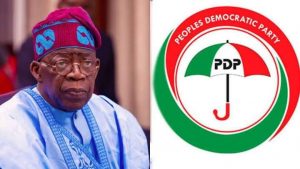Nigeria’s Debt Dilemma: A Sneak Peek at 2024 Budget

Nigeria’s 2024 budget has sparked discussions and concerns due to its record increase in deficit. The budget, signed by President Bola Tinubu, aims to balance the country’s financial needs with its long-term economic goals, prompting questions about the government’s borrowing practices and revenue structure.
Addressing the concerns, a government official highlighted the commitment to responsible borrowing, stating that the government would no longer borrow unlawfully. Instead, borrowing would be within the legal limits, primarily through issuing bonds. This strategy aims to involve private investors and avoid crowding out the private sector.
The budget’s revenue structure also drew attention, with discussions focusing on the potential of sectors like maritime to rival oil in contributing to national income. The creation of a dedicated ministry for blue and maritime economy underscores the government’s recognition of the sector’s potential.
However, the official emphasized the need for accountability, urging public officials to deliver on their assigned tasks or make way for those who can. President Tinubu echoed this sentiment, stating that those unable to contribute effectively should consider stepping down.
One of the major challenges highlighted was Nigeria’s oil production falling short of the budgeted target. The official stressed the importance of holding public officials accountable for meeting targets, especially in critical sectors like oil production, which affects foreign exchange reserves and the exchange rate.
In response to concerns about attracting foreign investment, the official mentioned executive orders signed by the President to liberalize the foreign exchange market, allowing for a market-based approach. While acknowledging short-term fluctuations, the official expressed confidence that this approach would lead to stability and increased investment in the long run.
The issue of Nigeria’s growing debt amidst limited revenue was also addressed. The official explained that certain essential expenses, like education and security, cannot be postponed, leading to increased borrowing. Nigeria’s low revenue-to-GDP ratio compared to other countries was cited as a contributing factor to the reliance on borrowing.
Regarding the budgetary process, the official acknowledged inefficiencies and the need for public scrutiny. The budget was described as a permission to spend rather than an obligation, emphasizing the role of citizens in holding the government accountable for how funds are utilized.
Looking ahead, the official outlined plans to enhance monitoring and evaluation mechanisms to ensure effective budget implementation. This includes public access to information through an app and increased transparency in project execution.
Vanguard News





